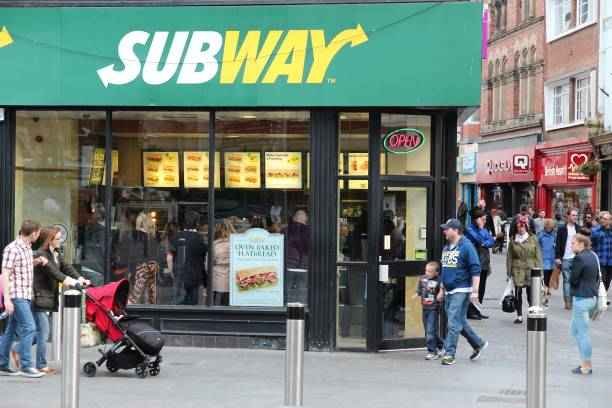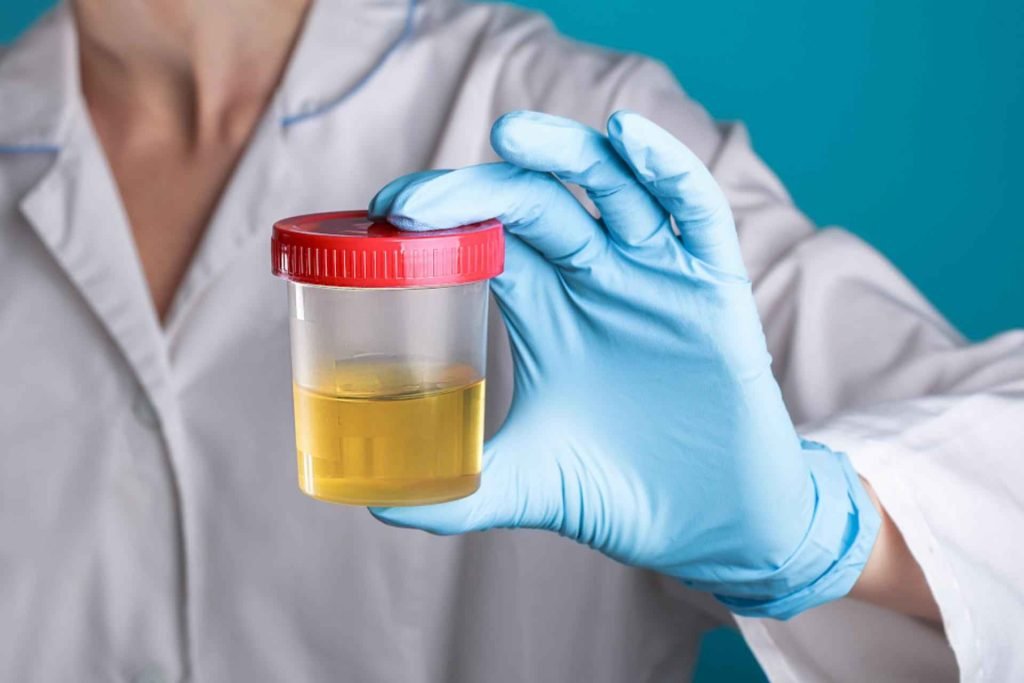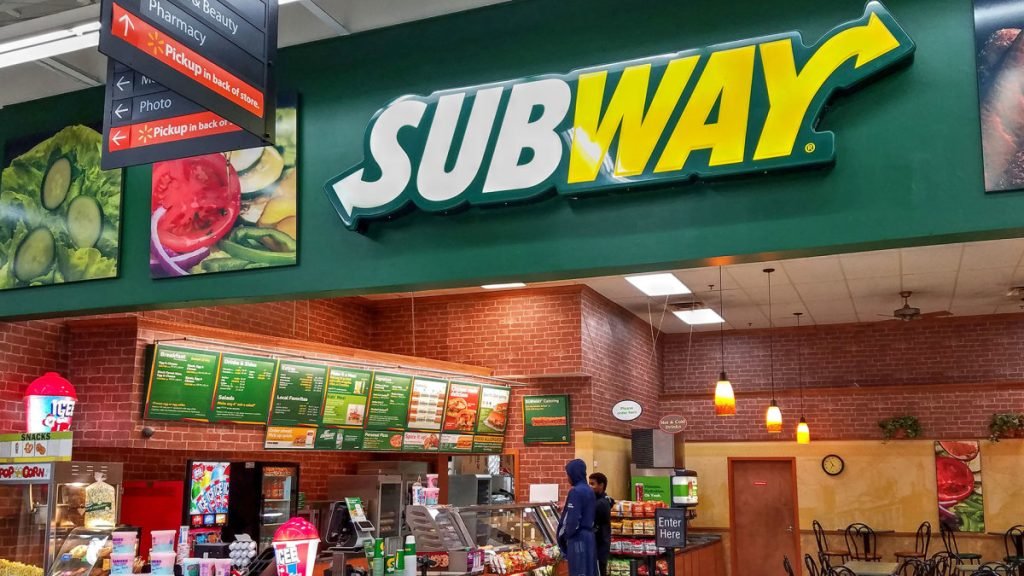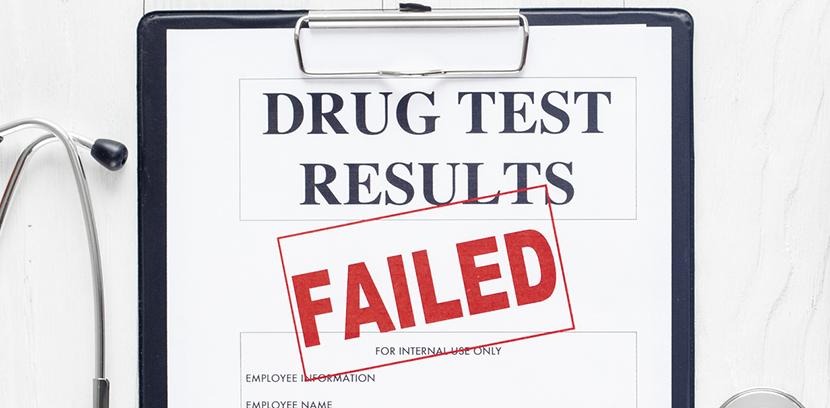If you’re considering a job at Subway, a popular fast-food chain known for its customizable sandwiches, you might wonder, does Subway drug test?
Do they require their employees to undergo drug testing?
As such, you must know that drug testing policies for employment can vary from company to company, so it’s essential to understand what to expect from each, particularly Subway.
Read on as we give you information on Subway drug test policies for employees, the circumstances under which they might do so, and what you should keep in mind if you’re applying for a job with Subway.
About Subway

Subway, the world’s largest submarine sandwich chain, has served delectable sandwiches for over five decades and has grown from a single sandwich shop in Connecticut to a global fast-food empire with thousands of locations in more than 100 countries.
It was founded in 1965 by Fred DeLuca and Peter Buck.
Subway is known for its wide variety of bread, fresh ingredients, and customizability.
Does Subway Drug Test Employees in 2023: Subway’s Drug Testing Policy
To secure a job at Subway, you would probably have to undergo a drug test.
Subway, like many other fast-food chains, typically reserves drug testing for specific circumstances and positions.
Some Subway stores would drug test new applicants. However, some don’t.
It’s important to note that not all Subway employees will be subject to drug testing.
The decision to drug test employees may vary by location and the specific franchise owner’s policies.
Here are some key points to consider:
1. Position-Specific Testing: Subway may conduct drug tests for employees in safety-sensitive positions, such as delivery drivers or those operating heavy machinery.
This is done to ensure the safety of both employees and customers.
2. Random Testing: Some Subway franchises may have a policy of random drug testing for employees, even if they don’t hold safety-sensitive positions.
However, this varies by location; not all franchises may implement random testing.
3. Pre-Employment Testing: Subway restaurants may require drug testing as part of the pre-employment screening process.
This is more common in areas where local or state laws mandate drug testing.
4. Reasonable Suspicion: Subway, like any other employer, may conduct drug tests if they reasonably suspect that an employee is using drugs while on the job.
Signs of impairment or erratic behavior may trigger such testing.
5. Local Regulations: The drug testing policy at Subway may also be influenced by local and state laws.
Some areas have stricter regulations regarding employment drug testing, which can impact the company’s policies.
What to Expect During Subway Drug Test
If you’re required to undergo a drug test as part of your Subway employment, it’s essential to know what to expect:
1. Type of Test: Subway typically uses urine drug tests, which are the most common method for workplace drug testing.
You will be asked to provide a urine sample, which will be sent to a laboratory for analysis.
2. Confidentiality: Your drug test results should remain confidential and only be disclosed to those with a legitimate need to know, such as human resources personnel.
3. Compliance: Always comply with the drug testing process.
Refusing to take a drug test can result in disciplinary action or even termination, depending on the company’s policies.
4. Drug-Free Workplace: Remember that Subway, like many other employers, aims to maintain a drug-free workplace to ensure the safety of its employees and customers.
3 Types of Drug Tests to Expect at Subway

If you’re considering a job at Subway, you may be curious about the types of drug tests the company may employ during their hiring process or while you’re employed.
Subway, like many other employers, takes the safety of its employees and customers seriously.
To maintain a drug-free workplace and ensure everyone’s well-being, they may implement certain types of drug tests.
1. Urine Drug Testing
Urine drug testing is one of the most common methods used by employers, including Subway, to check for drug use.
Here’s what you need to know about urine drug testing at Subway:
- Collection Process: You will be asked to provide a urine sample during a urine drug test.
This is typically done at a designated testing facility or clinic.
- Detection Window: Urine drug tests can detect the presence of various drugs, including marijuana, cocaine, amphetamines, opioids, and more.
The detection window varies depending on the drug but generally covers recent drug use within the past few days to a few weeks.
- Privacy and Confidentiality: Subway, like any reputable employer, ensures that the drug testing process is conducted with respect for your privacy.
The results are typically kept confidential and only shared with individuals who have a legitimate need to know.
- Pre-Employment and Random Testing: Subway may conduct urine drug tests for pre-employment screening.
Additionally, some Subway locations may implement random drug testing as an ongoing policy.
2. Oral Fluid (Saliva) Testing/Mouth Swab Test
Oral fluid testing or mouth swab test is another method used to detect drug use, and Subway may utilize this approach under certain circumstances:
- Sample Collection: A swab is placed in your mouth to collect a saliva sample for oral fluid testing.
This method is less invasive than urine testing and can be administered on-site at Subway locations.
- Detection Window: Oral fluid tests effectively detect recent drug use, typically within the past 24-48 hours.
They are especially useful for identifying impairment due to recent drug consumption.
- On-Site Testing: Subway may use on-site oral fluid tests for random or post-accident drug testing.
This allows for immediate results, making it an efficient option for certain situations.
3. Hair Follicle Testing
While less common than urine or oral fluid testing, hair follicle testing is another method that Subway may employ:
- Sample Collection: A hair follicle test involves taking a small sample of hair, usually from the scalp or another inconspicuous area.
This test can detect drug use over a more extended period, up to 90 days.
- Detection Window: Hair follicle testing is highly effective at identifying drug use over an extended period, making it suitable for assessing long-term drug use history.
- Pre-Employment or Post-Incident Testing: Subway may use hair follicle testing in specific situations, such as pre-employment screenings or investigations following workplace accidents.
It’s essential to know that Subway’s drug testing policies may vary depending on the location and the specific franchise owner’s preferences.
While not all Subway employees will undergo drug testing, it’s essential to understand the potential types of tests you might encounter.
Compliance with Subway’s drug testing policies is crucial to maintaining a positive working relationship and ensuring the safety of all employees and customers.
What Drugs Does Subway Test For?

For those seeking employment at Subway, it’s important to understand that the company, like many other employers, may implement drug testing procedures to ensure a safe and drug-free work environment.
There are over 10-panel drug tests, but the most common is the 5-panel drug test.
However, not all drug tests are comprehensive, and Subway, like many companies, typically screens for specific drugs.
1. Marijuana (THC): Marijuana, or its active component THC (tetrahydrocannabinol), is often included in drug screenings.
Despite the growing acceptance of marijuana for medical and recreational use in various regions, some employers, including Subway, may still consider it a substance that could impair an employee’s performance or pose safety risks in specific job roles.
2. Cocaine: Cocaine is a powerful stimulant drug that affects an individual’s judgment and coordination.
Subway, like many employers, may test for cocaine to ensure that employees are not under the influence of this drug while working.
3. Amphetamines: Amphetamines are another class of stimulants that Subway might test for.
These drugs can enhance alertness and energy, but they may also lead to impaired judgment and behavior changes, posing safety concerns in a workplace setting.
4. Opioids: Opioids, including prescription painkillers and illegal substances like heroin, are often screened for during employment drug tests.
Misuse of opioids can lead to impairment, reduced productivity, and potential safety hazards.
5. Methamphetamine: Methamphetamine, commonly known as meth, is a potent central nervous system stimulant.
It can have severe effects on an individual’s physical and mental health.
Subway may test for methamphetamine due to its potential to impair judgment and behavior.
6. Phencyclidine (PCP): PCP is a hallucinogenic drug that can cause severe behavioral and cognitive effects.
Subway may include PCP in their drug screening to ensure that employees are not under the influence of this substance while on the job.
7. Benzodiazepines: Benzodiazepines are a class of drugs used to treat anxiety but can cause drowsiness and impair cognitive functions.
Subway may test for benzodiazepines to assess whether an employee’s use of these drugs could affect their work performance or safety.
8. Synthetic Drugs: Subway, like many employers, may also screen for synthetic drugs, such as synthetic cannabinoids or “spice,” which can have unpredictable and dangerous effects on individuals.
It’s important to note that Subway’s drug testing policies may vary by location, and the specific drugs they test for may depend on local laws, franchise owner preferences, and the nature of the job.
Additionally, Subway may conduct different types of drug tests, including urine, oral fluid, or hair follicle tests, depending on their policies and requirements.
Does Subway Use Pre-Employment Drug Testing?
For many job seekers, the question of whether a potential employer conducts pre-employment drug testing can be a significant factor in their decision to apply or accept a job offer.
In the case of Subway, understanding their stance on pre-employment drug testing is crucial for those seeking opportunities within the company.
Subway, like numerous other employers, may implement pre-employment drug testing as part of their hiring process.
However, it’s important to note that Subway’s approach to drug testing can vary based on several factors, including the location of the franchise and the specific franchise owner’s preferences.
Are Subway Workers Randomly Drug Tested?

Subway is committed to maintaining a safe and drug-free workplace.
To achieve this, some Subway restaurants have implemented random drug testing policies for their employees.
Random drug testing is a workplace policy where employees are selected for drug testing without advance notice or suspicion of drug use.
This practice is often implemented by employers who prioritize safety, especially in roles that involve safety-sensitive tasks or the handling of heavy machinery, as is common in the fast-food industry.
It’s important to clarify that Subway’s approach to random drug testing is not uniform across all locations.
Subway operates primarily through a franchise model, where individual restaurants are owned and operated independently.
As such, the decision to implement random drug testing varies from one franchise owner to another.
When Does Subway Drug Test Employees?
The timing of drug tests for Subway workers can vary based on specific circumstances and policies.
1. Pre-Employment Screening: One of the most common instances when Subway conducts drug tests on workers is during the pre-employment screening process.
Before officially hiring an applicant, Subway may require them to undergo a drug test.
This helps ensure new employees are drug-free from the start, aligning with the company’s commitment to a safe work environment.
2. Safety-Sensitive Positions: Subway, like many other employers, may require drug testing for employees in safety-sensitive positions.
These positions include delivery drivers, those responsible for food preparation and handling, and employees operating heavy machinery.
Drug testing for these roles aims to minimize the risk of workplace accidents and ensure the safety of employees and customers.
3. Reasonable Suspicion: Subway may conduct drug tests on workers if there is a reasonable suspicion of drug use while on the job.
Signs of impairment, erratic behavior, or reports from coworkers or supervisors may trigger such testing.
It’s essential for Subway to address these concerns promptly to maintain a safe and productive work environment.
4. Post-Incident Testing: In the unfortunate event of a workplace accident or incident, Subway may require drug testing as part of the investigation process.
This helps determine whether drug use played a role in the incident and ensures appropriate actions are taken to prevent future accidents.
5. Random Drug Testing: Some Subway locations may implement random drug testing as an ongoing policy.
This means that workers may be selected for testing without advance notice or any specific suspicion.
Random drug testing is a preventive measure to maintain a drug-free workplace and may be applied to various positions.
6. Compliance with Local Laws: Subway’s drug testing policies may also be influenced by local and state laws and regulations.
In some regions, employment drug testing may be mandated or regulated by law, impacting Subway’s testing practices.
The timing of drug tests for Subway workers depends on various factors, including the nature of their position, the franchise’s policies, and the local legal framework.
Subway’s commitment to a safe and drug-free work environment means drug testing can occur at different points in an employee’s career, from pre-employment screening to random tests and post-incident investigations.
Failing A Subway Drug Test: What Happens When You Do

Failing a drug test can have significant consequences, affecting your job, reputation, and future opportunities.
We will explore the potential repercussions and the steps to take if you fail a Subway drug test.
4 Consequences of Failing a Subway Drug Test
1. Job Termination: Failing a Subway drug test can lead to immediate job termination.
Subway, like many employers, maintains a strict policy against drug use in the workplace.
2. Loss of Reputation: Failing a drug test can damage your professional reputation, potentially making it challenging to secure future employment opportunities.
3. Legal Implications: Depending on the specific circumstances, failing a drug test may have legal implications, particularly if the drug use violates local or state laws.
4. Future Employment: A failed drug test may make it challenging to find employment with other companies, as potential employers often inquire about previous drug test results.
4 Steps to Take If You Fail a Subway Drug Test
1. Understand the Results: If you receive a positive drug test result, understand which substances triggered the positive result.
This information can be crucial if you need to discuss the situation with Subway or seek legal advice.
2. Review Subway’s Policy: Familiarize yourself with Subway’s drug testing policy and the potential consequences of failing a drug test.
Understanding the policy can help you navigate the situation.
3. Seek Legal Advice: If you believe the drug test results are inaccurate or if you face legal implications, consult with an attorney who specializes in employment law.
They can guide you on your rights and potential courses of action.
4. Consider Rehabilitation: If drug use is a concern, seek help through rehabilitation programs.
Demonstrating a commitment to overcoming substance abuse may improve your prospects in the future.
Conclusion
Subway’s drug testing policy varies by location and the specific franchise owner’s preferences.
While not all employees will be subject to drug testing, certain positions, pre-employment screenings, and reasonable suspicion may trigger drug tests.
If you’re considering a job at Subway, it’s a good idea to inquire about the drug testing policy during the application or interview process to understand what to expect in your specific situation.
Always be aware of and comply with the company’s drug testing policies to maintain a positive working relationship and ensure the safety of your job.
We wish you the best of luck!
Leave a comment below if you have further questions.

